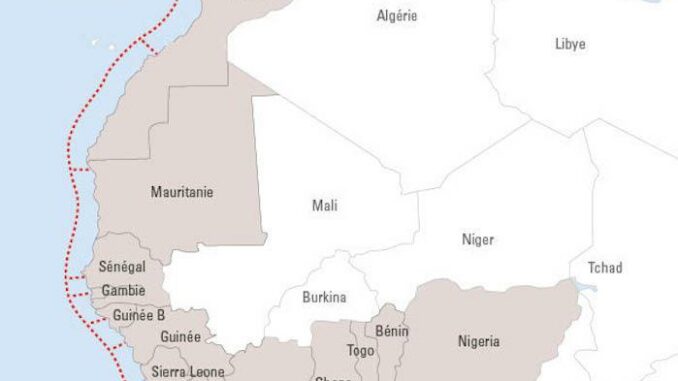
Morocco is set to launch a tender in 2025 for the first phase of the Morocco-Nigeria gas pipeline project, a transformative initiative poised to be one of Africa’s most ambitious energy undertakings.
The project aims to transport approximately 30 billion cubic meters of gas annually from Nigeria to Morocco, with the potential to extend supply to Europe. Beyond addressing energy security, it seeks to foster regional integration and boost economic cooperation across West Africa.
Spanning over 5,600 kilometers and crossing 13 countries, the pipeline is projected to cost an estimated $25 billion. Notably, the first phase focuses on connecting Senegal and Mauritania to Morocco. This is a strategic decision, as it prioritizes the development of critical energy infrastructure in Mauritania, positioning the country as a pivotal player in regional energy networks.
For Mauritania, this phase represents significant opportunities. It will not only enhance domestic energy capacity but also open pathways for gas exports, attract foreign investment, and stimulate job creation in related sectors. Furthermore, Mauritania’s integration into this expansive project underscores its role in strengthening energy cooperation and economic ties across the continent.
Originally launched through an agreement between Morocco and Nigeria in 2016, the pipeline builds on the foundation of the West African Gas Pipeline and enjoys support from the Economic Community of West African States (ECOWAS). With its first phase emphasizing Mauritania’s energy development, the project promises substantial economic and strategic benefits for the country, reinforcing its position in Africa’s energy future.
